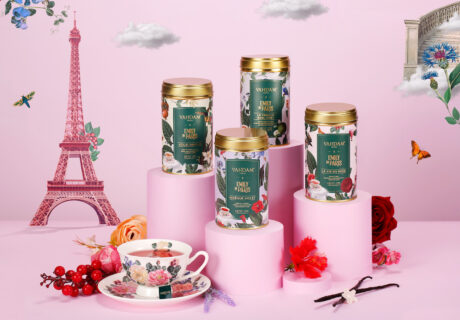Using his experience of assisting organic food and drink brands in trading with the UK, in late 2022 Tom Campbell-Smart, operations director at Brand Organic, advised a NOPEX webinar audience on how to trade with the UK post-Brexit and, crucially, which retail outlets are best pursued by new organic entrants to the market.
In his presentation the trade consultant laid out the FMCG requirements for accessing the UK’s multi-billion-pound natural and organic health food market, covering organic equivalence, the need for an importer, how the regulations could change in future, how brands can stay prepared and what to expect from the UK retail sector.
Campbell-Smart opened by stating that Brand Organic – a specialist agency which imports brands to the UK retail market – has itself had to ‘deal with the challenges of Brexit’. “We’ve had to adapt and evolve. But we never have any issues getting goods into the market. I will talk you through what those challenges are and hopefully that will help you to overcome them as you … enter what is still a very lucrative marketplace.”
Calling the UK market ‘fiercely competitive’ he highlighted that ‘getting your supply chain right and understanding how to get goods into the country is absolutely key’, given that ‘the rules have changed. He noted that phrase three of the UK’s border operating model won’t be implemented until late 2023.
Given current global economic pressures Campbell-Smart acknowledged that while the UK is ‘very much still open for business’ following Brexit, consumer purses are being squeezed ‘thanks to inflation, energy price rises, the recession, tax rises and spending cuts’ – all of which will impact long-term spend. “Inflation in the UK, which is currently about 10%, is expected to continue to rise … or be that high at least into 2024. So just understand what that looks like from a consumer perspective. That is mirrored across Europe, but if you look at growth projections that have been published recently the UK is certainly looking, out of all the G20 nations, to grow somewhat lower than the rest.”
Addressing the multi-national trade audience, he outlined that the key to successfully getting goods into the UK today is ‘having the right partner, understanding the process and having a good haulier on both sides of the border’.
Drawing on his own personal passion, Campbell-Smart homed in on the specifics around requirements for organic imports. “There are a lot of questions around this, especially at trade shows. At present there is organic equivalency in place. That means the UK organic bodies – the Soil Association, the Organic Food Federation – recognize the EU leaf and the EU certifiers as equivalent to them and vice versa. This equivalency agreement was written in one day, two days before Brexit occurred. It solved the majority of the issues, however … it has caused issues under the specifics. The agreement covers goods that are manufactured or processed in the EU or the UK; it does not cover goods that are simply handled … or re-packed in the EU. This is a very grey area and we spoke to our certifier a lot about this. If you bought organic coffee from Brazil and imported it into the EU, re-packed it and sold it to the UK, your organic certifier may not certify you for that activity and the UK certifier for the importer may not certify them for that either. It’s something to bear in mind. This equivalency agreement runs out at the end of 2023. I would expect this to be amended in a new equivalency agreement.”
The industry expert then commented on the absence of a TRACES system before moving on the discuss retail. While the major multiples dominate the UK grocery market, he believes they are ‘not always the first port of call’ for importers; supermarket buyers look for brands which have traction and prioritize products which are a ‘safe bet’ and guaranteed to sell. “They do not rake risks; they like a trend to really proliferate before they get into it. There can be a lot of work to be done before supermarkets are entertained.”
He also spoke of ‘just how important price promotions are’ to UK consumers. With over half of grocery retail products in 2021 having been sold on promotion, he said called Brits ‘very bargain-happy’. “They are always shopping for a deal and especially at this moment with food and drink prices going up as they are, this is likely to become even more important. So it’s something to consider for your long-term entry strategy.”
Independents, he said, represent a ‘vibrant’ and ‘massive’ market which can be ‘accessed with less difficulty and less rules and regulations’.
Listen to the full webinar here.





